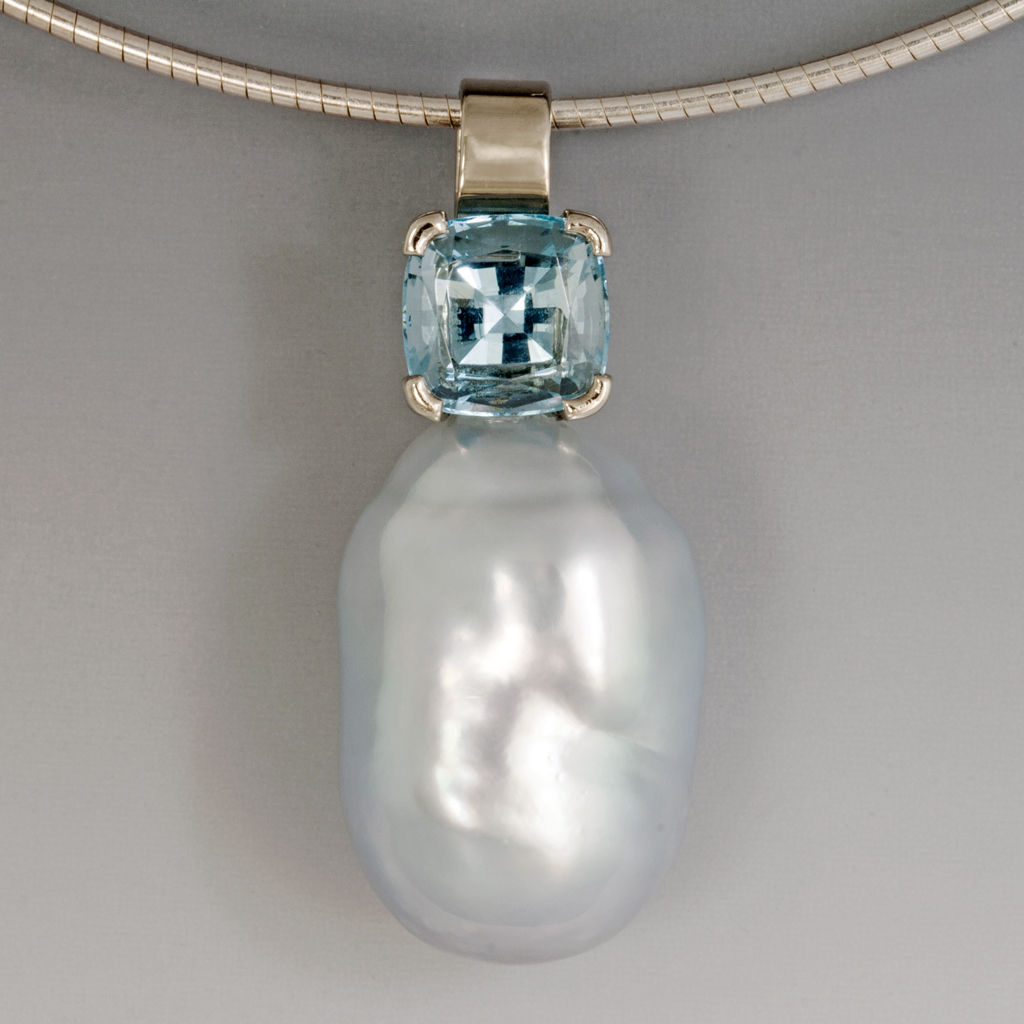
A deep blue cushion shaped aquamarine tops an irridescent blue Australian South Sea Pearl. View this lovely pendant here by clicking on the image.

A deep blue cushion shaped aquamarine tops an irridescent blue Australian South Sea Pearl. View this lovely pendant here by clicking on the image.
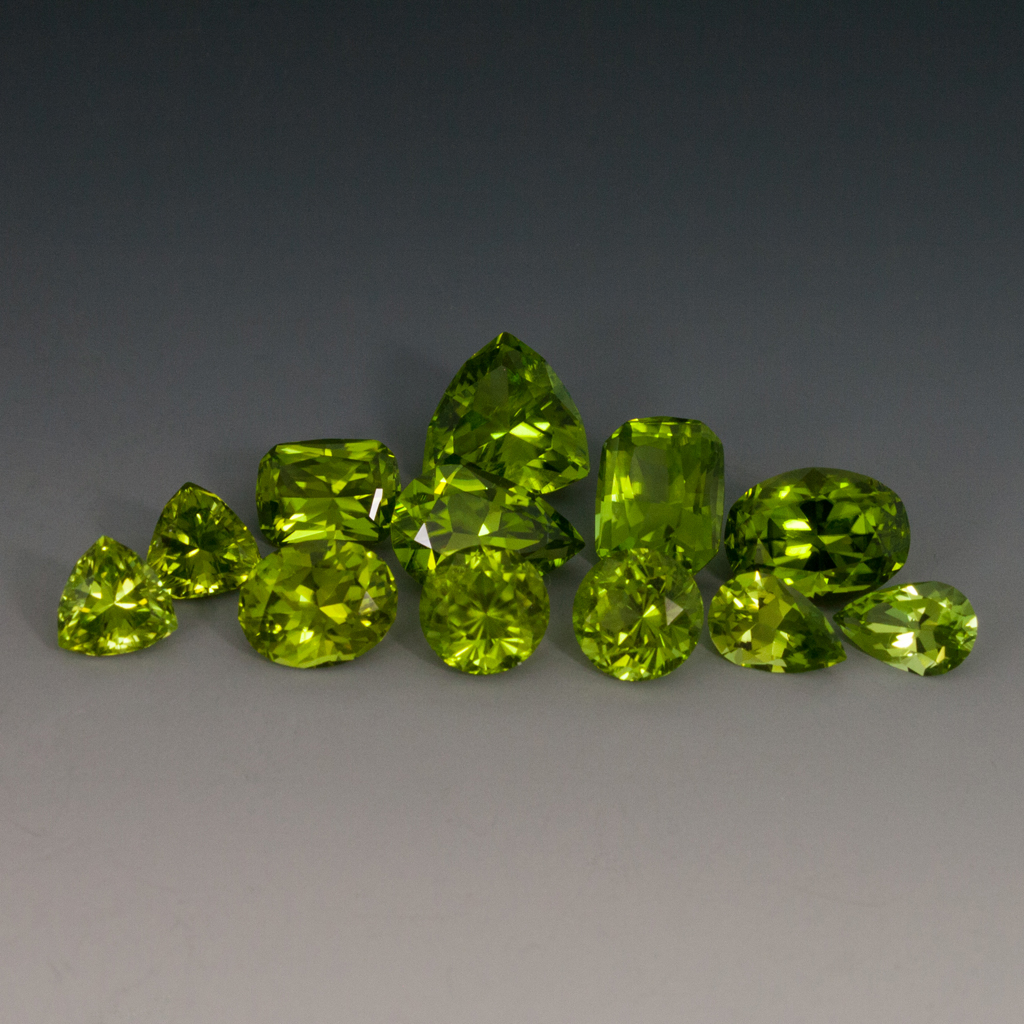
Most gems are colored by impurities in the crystal. Peridot’s yellow-green is due to the presence of iron. Higher quality stones have an intense color. The best peridot is pure grass green. Most of the stones with the finest color come from Myanmar and Pakistan. Peridot has extremely high double refraction: when you look closely through the gem, you can see two of each pavilion facets.
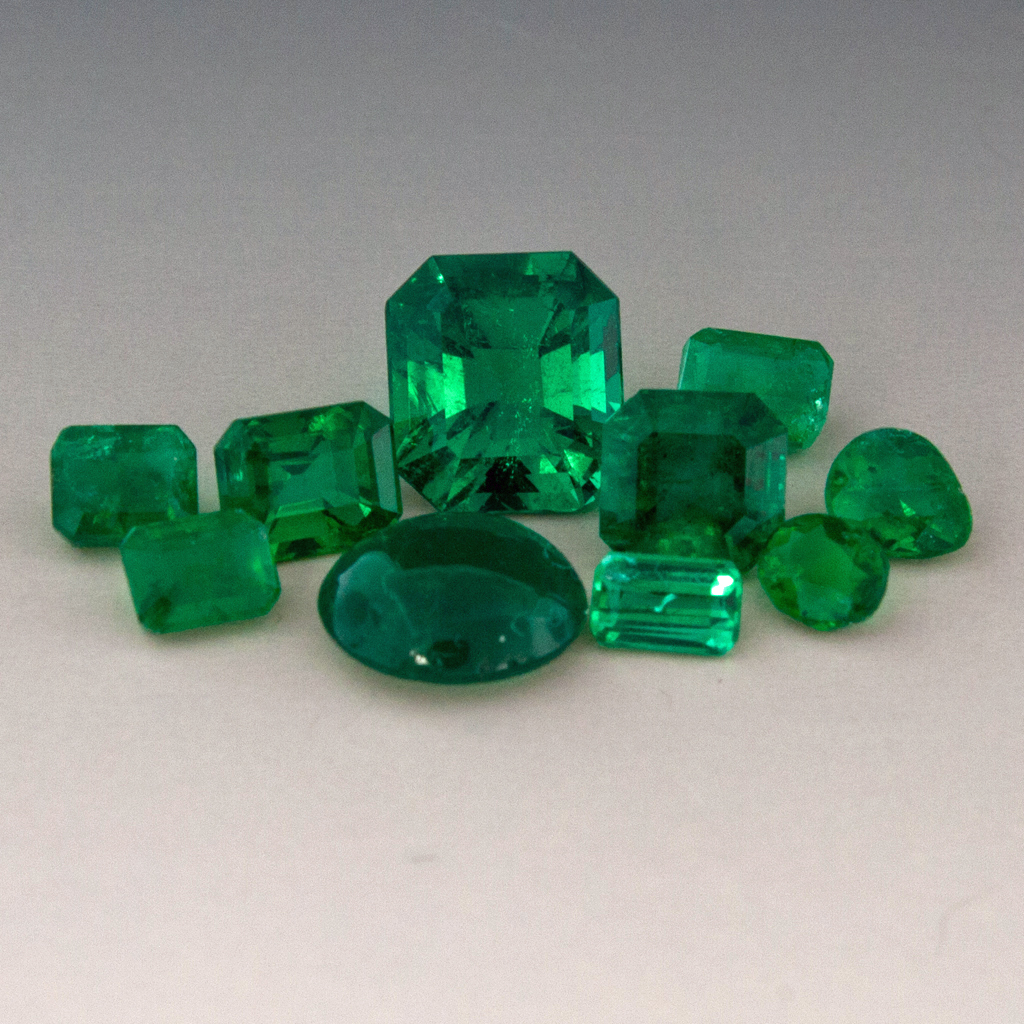
Emerald is a gemstone known for its bright green color and is the birthstone for May. It also marks a couple’s 35th wedding anniversary.
Emerald is a member of the beryl family colored green by trace amounts of chromium and sometimes vanadium. Beryls have a hardness of 7.5-8 on the Mohs scale, but most emeralds are highly included so their toughness is classified as generally poor. Emerald is the rarest of all gemstones and so is valued accordingly. They are mined all over the world, primarily in Central & South America and Africa.
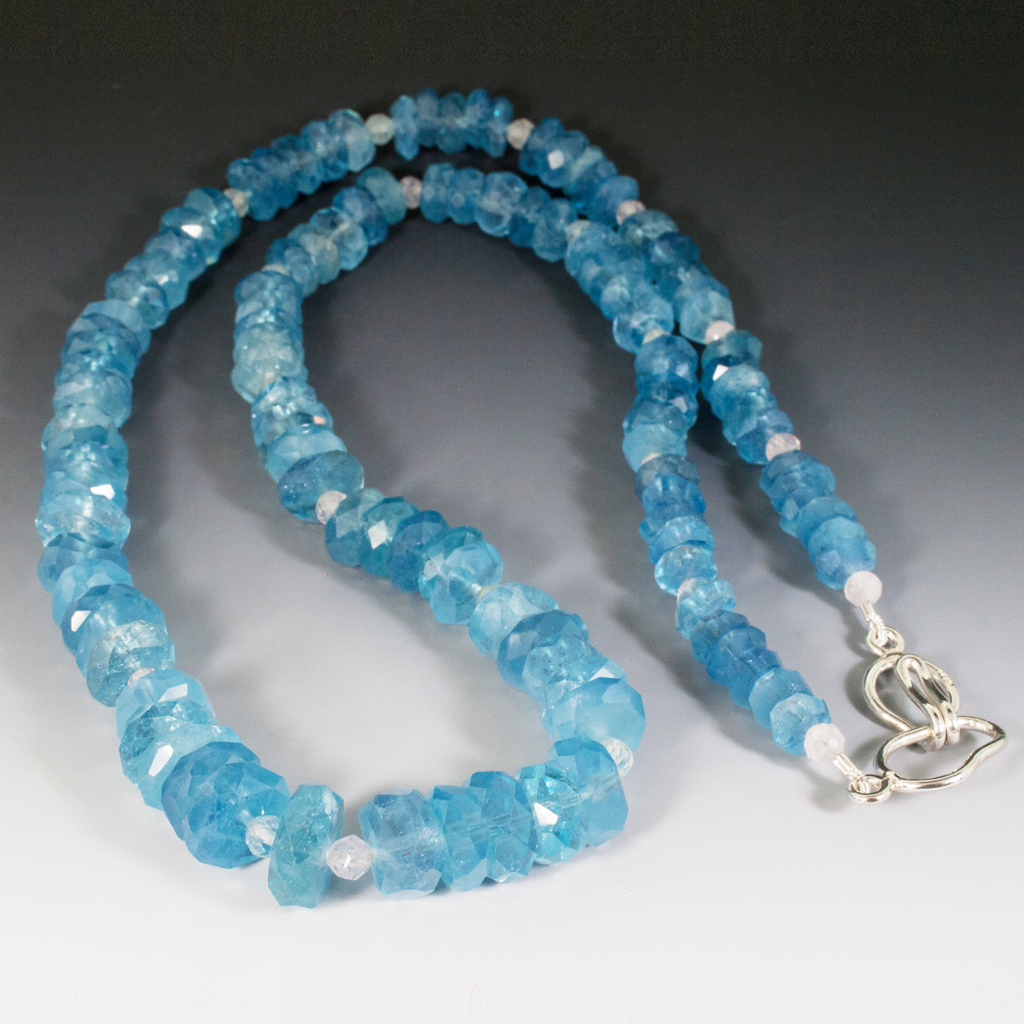
Aquamarine with Beryl, Sterling Silver Clasp, 22″
Faceted rondelle beads graduating from 11.5 to 7.2mm
with 4mm round faceted mixed color beryl beads.
Large sterling silver clasp.
The total length is 22″.
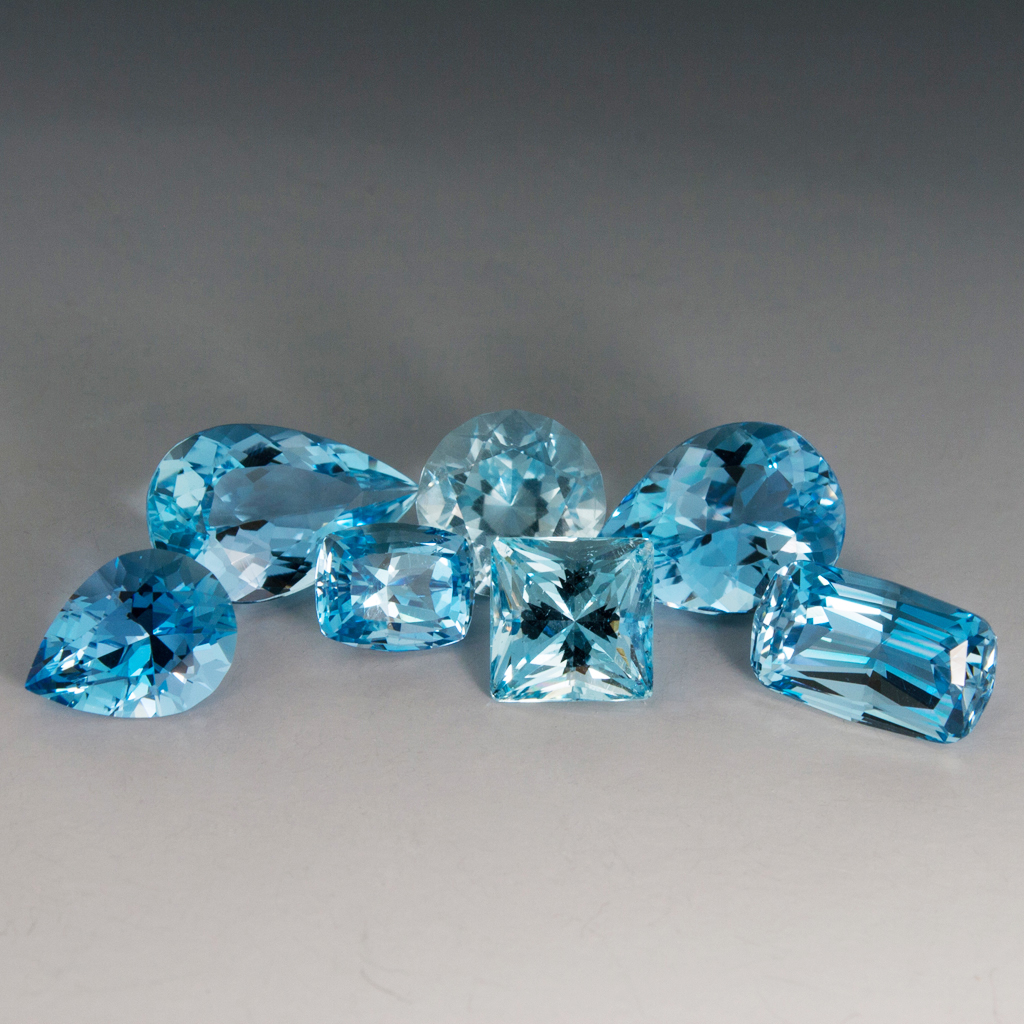
Aquamarine – March Birthstone, 19th Wedding Anniversary. Aquamarine evokes the purity of crystalline waters and the exhilaration and relaxation of the sea. It is calming, soothing, and cleansing. It inspires truth, trust and letting go.
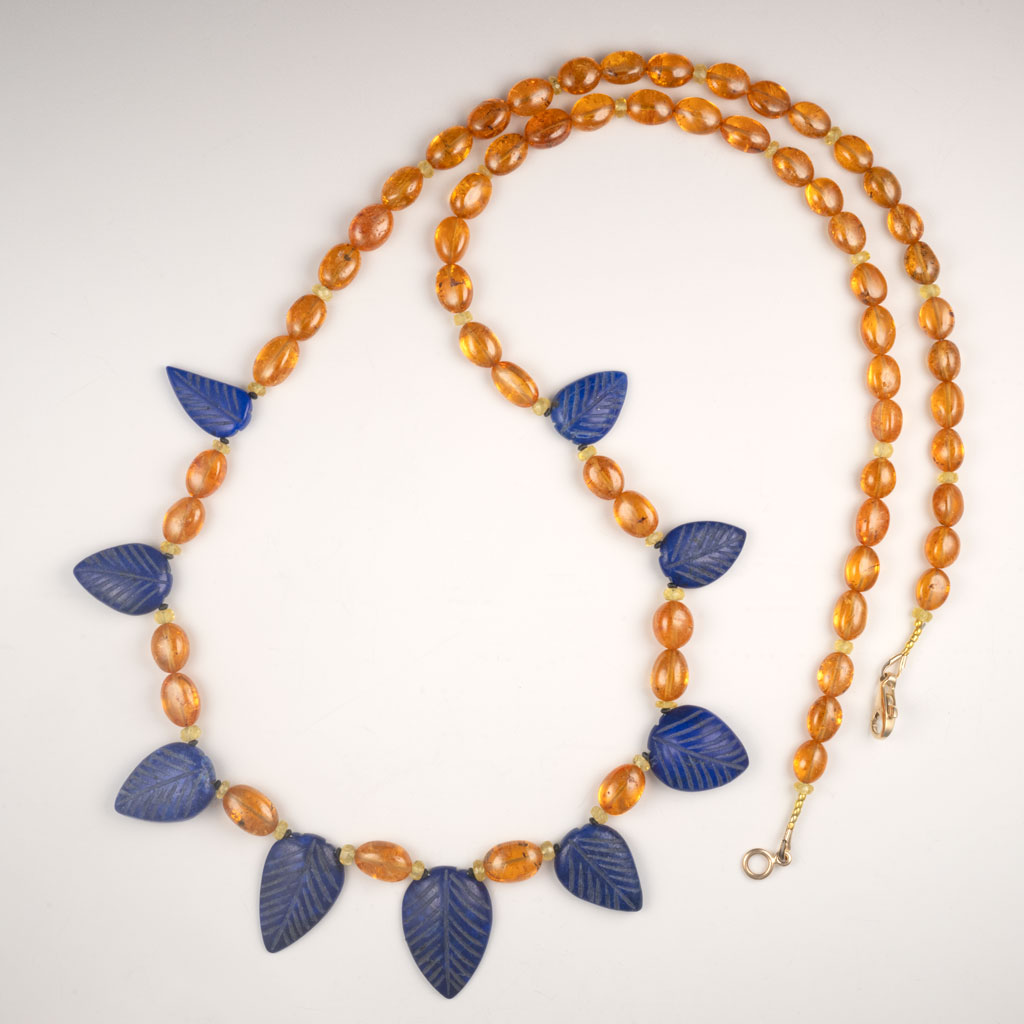
Also known as “Spessartine” this lively garnet is usually orange to reddish-brown and is somewhat rare. Most spessartites especially orange ones, have eye-visible inclusions.
Manganese is the element in Spessartiet that produces the orange color. Spessartite has been found in Brazil, Burma, Madagascar, Mozambique, Namibia, Nigeria, Sri Lanka, and the USA (San Diego County, CA). The most important sources today are Nigeria and northeast Namibia. Spessartites are not enhanced by any method. Hardness is 7 – 7.5 on the Mohs scale.
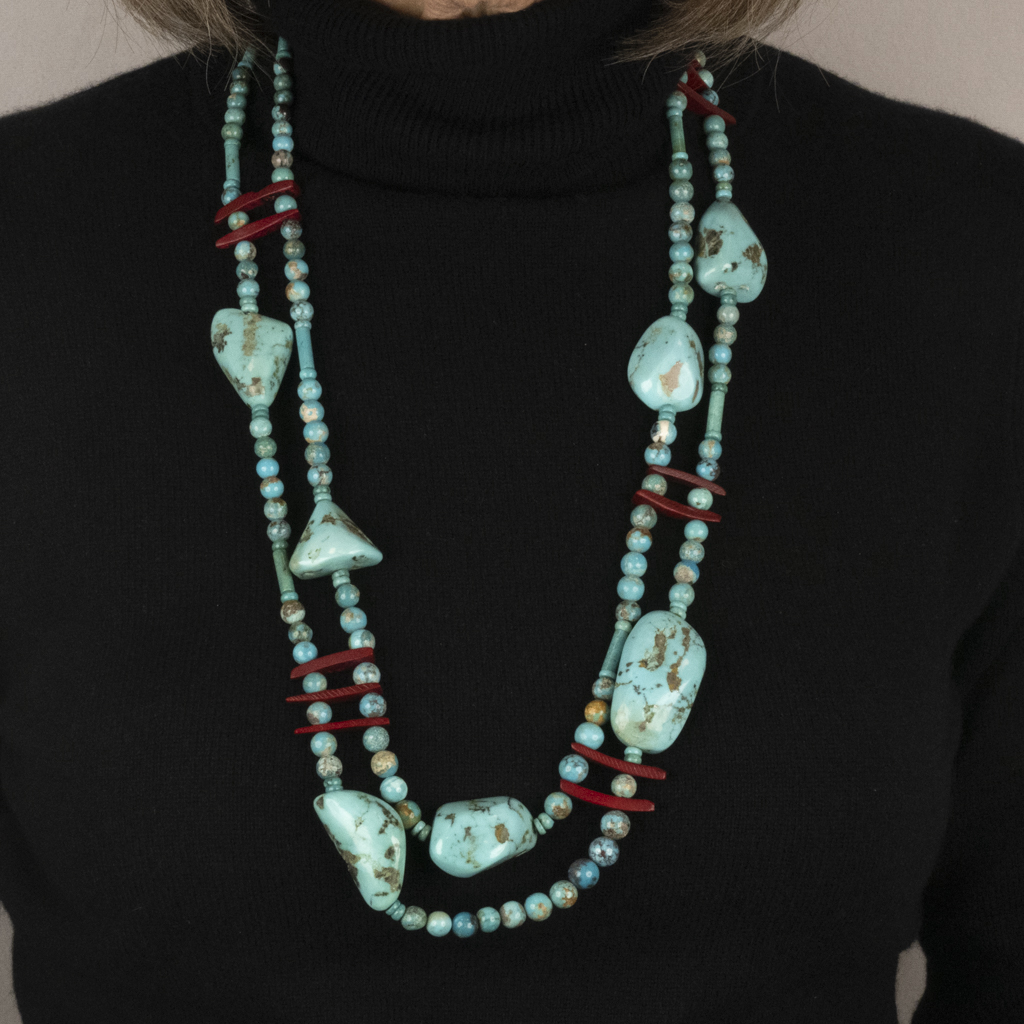
An alternative birthstone for December. This endless necklace is made from natural turquoise beads from Arizona. Large polished chunks of natural turquoise are juxtaposed with a mixture of various shapes and sizes of turquoise beads. The red beads are coconut shell that cleverly keep this magnificent necklace in place.
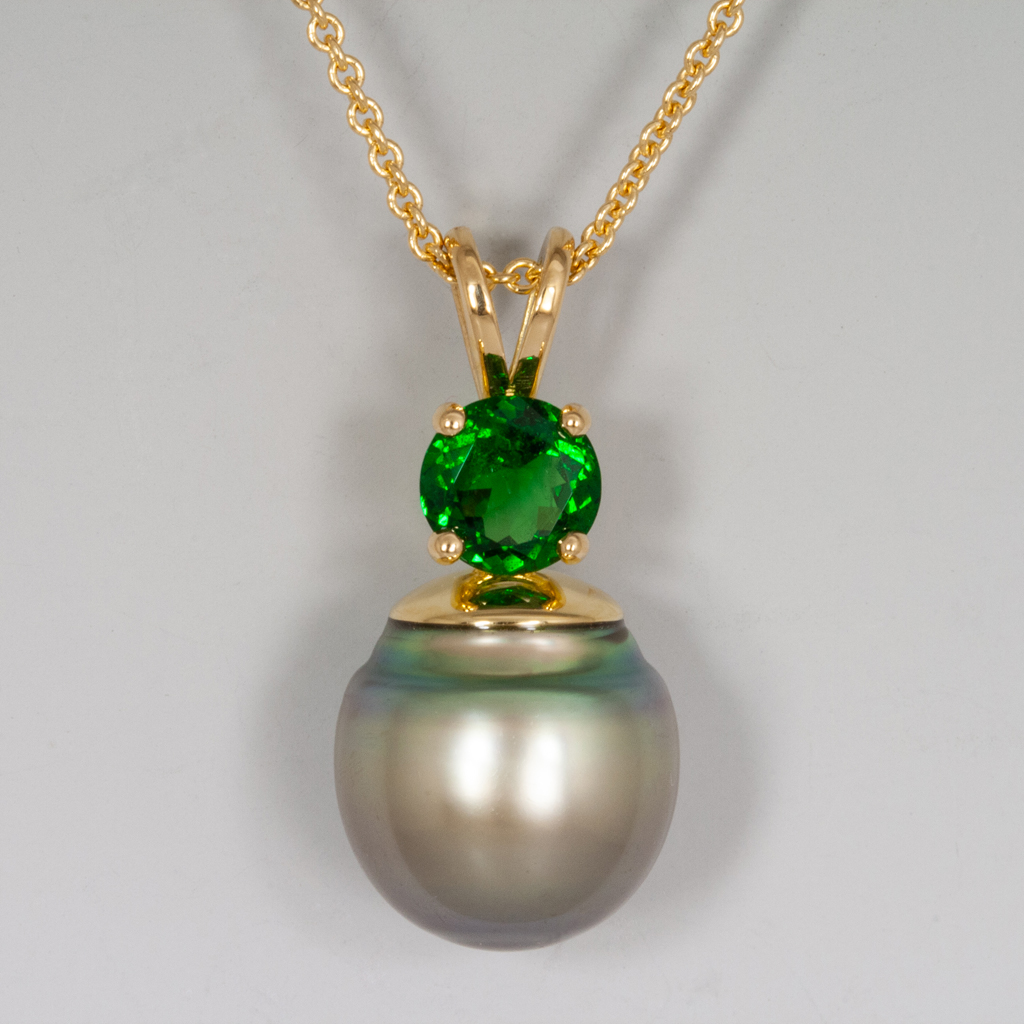
If you’re contemplating green gemstones, one rare but beautiful alternative to emerald is a Tsavorite garnet.
Tsavorite garnet is one of the most important varieties of grossularite garnet. It was first discovered in 1967 by Campbell Bridges, a Scottish geologist. Tsavorite was named after Tsavo National Park on the border between Kenya and Tanzania, where the stones were discovered.
Tsavorite garnets are about 200 times rarer than emeralds, and they are among the most expensive types of garnets because of their rarity.
These types of garnets also tend to be small in terms of carat size. The majority of stones are under one carat. Pieces over two carats are rare and therefore significantly more expensive than the smaller stones. The most preferred color is a pure, highly saturated green.
Unlike emeralds, inclusions are rare, so Tsavorite garnets don’t typically need to be treated or filled. They have a high refractive index which makes them especially brilliant. They are moderately hard, measuring 6.5 – 7.5 on the Mohs scale.
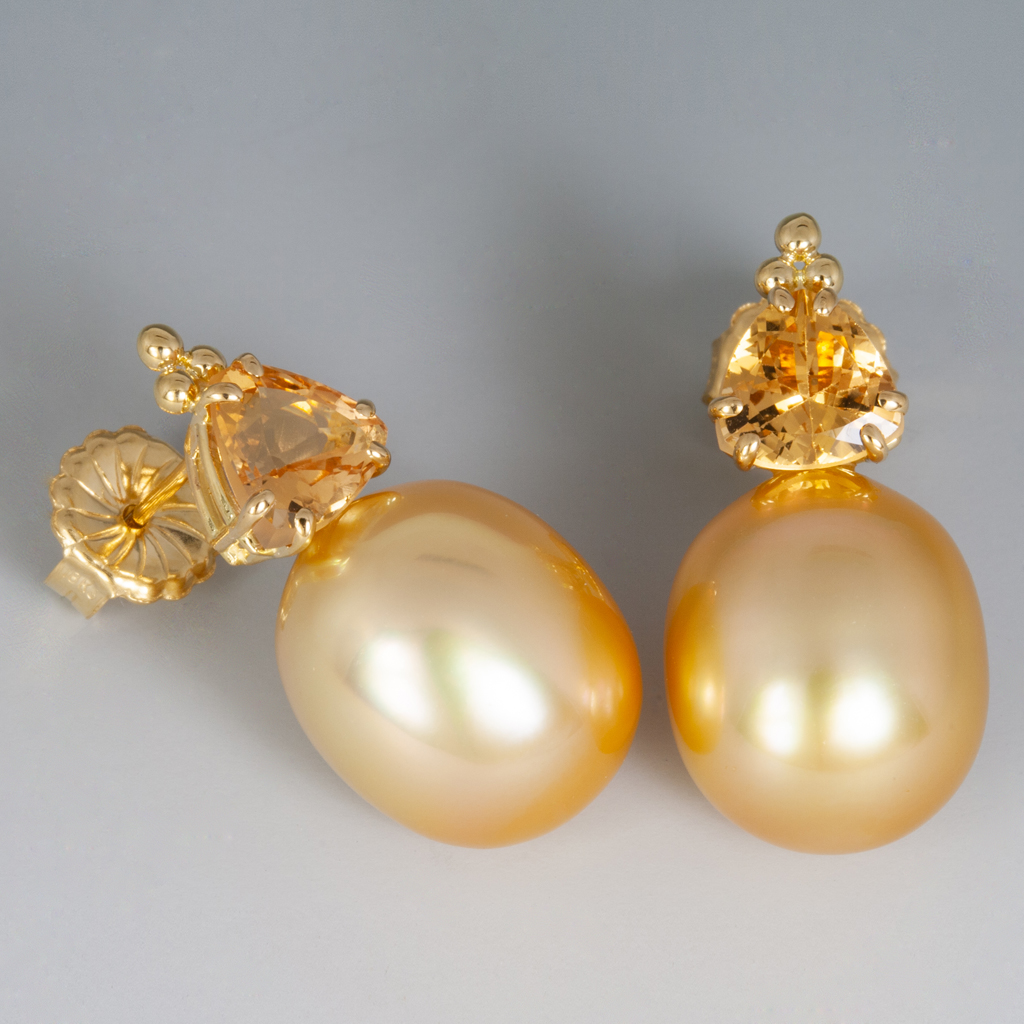
Topaz, the birthstone for November, is naturally a transparent gem but it is found in various tones of yellow, gold, orange, red, blue, green, pink, and brown. It has a hardness of 8 on the Mohs scale, making it a nice jewelry gemstone.
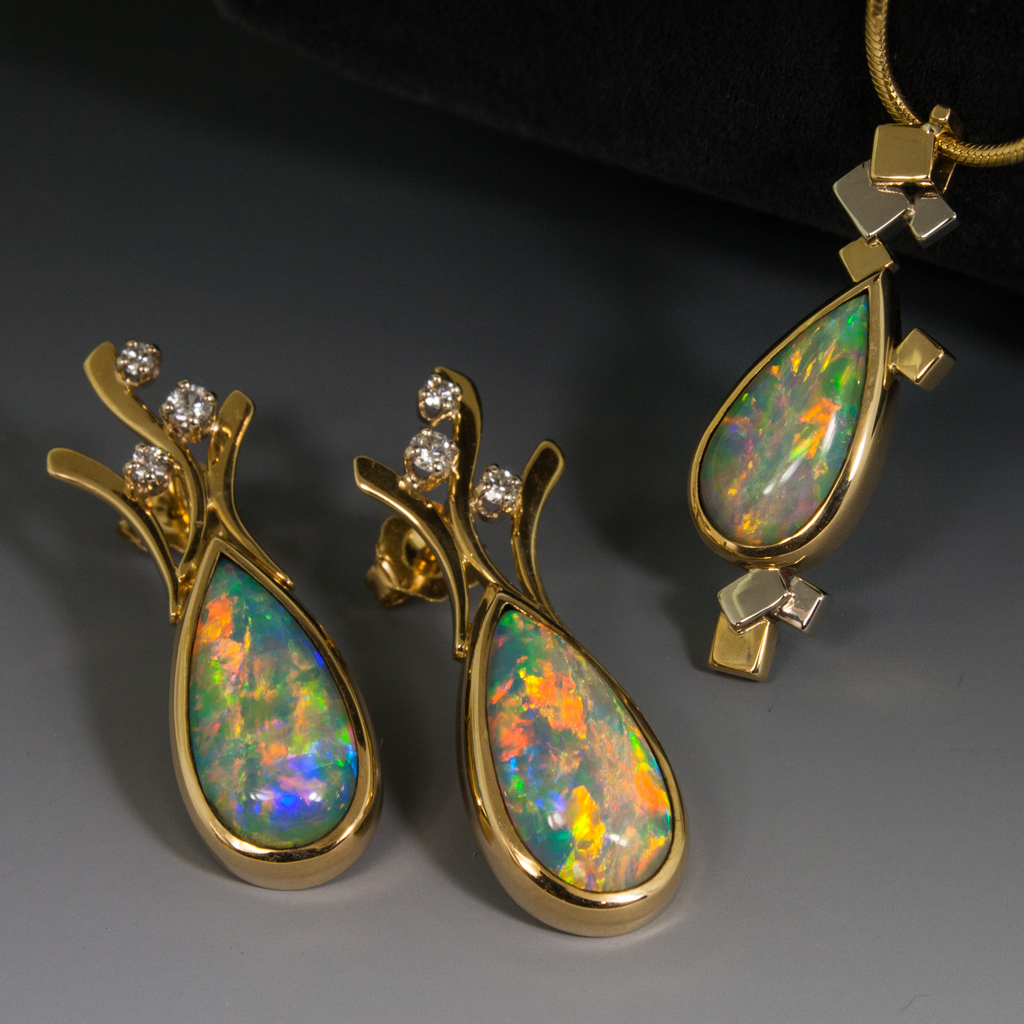
Oh, the spectral delight that is Opal, the “Eye Stone.” Like lightning in a rainbow, it flashes its brilliance with even the slightest movement and claims notice by all who witness its phenomenal “fire.”
These Australian Crystal Opal pendant and earrings with diamonds are a perfect example!